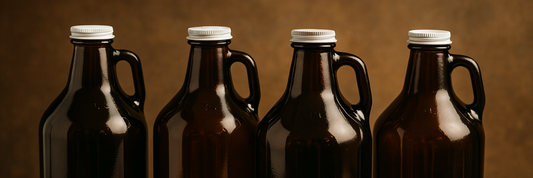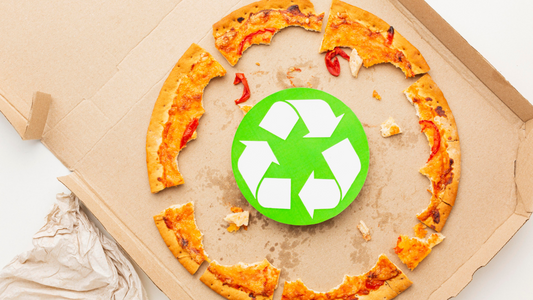As the global focus on reducing plastic waste intensifies, aluminum cans have gained popularity as an eco-friendlier alternative for packaging water. But is water stored in aluminum cans truly safe? While these cans are celebrated for their recyclability and reduced environmental impact, questions about their safety, potential health risks, and long-term sustainability have emerged. In this article, we’ll explore the safety of drinking water from aluminum cans, weigh the health and environmental implications, and provide insights into alternatives.
- Does Aluminum Rust? Understanding the Science Behind Aluminum Corrosion
- Can Aluminum Cans Be Crushed Before Recycling? A Comprehensive Guide to Best Practices
- Can Aluminum Cans Be Melted Down? A Comprehensive Guide
Why Aluminum Cans Are Used for Water
In recent years, aluminum cans have become a significant player in the beverage industry. Traditionally used for carbonated drinks, these containers are now being embraced as an alternative to plastic bottles for water.
Rising Popularity in the Beverage Industry
Aluminum cans are lightweight, easy to transport, and durable. They offer a convenient, single-use solution that appeals to consumers on the go. With growing concerns about the environmental hazards of plastic, the shift to aluminum seems logical.
Comparison to Alternatives
While glass bottles are fully recyclable and maintain the purity of the contents, they are heavier and more fragile. Plastic bottles, though convenient, contribute significantly to pollution and take centuries to decompose. Aluminum cans provide a middle ground, combining portability with the potential for high recyclability.
Environmental Appeal
Aluminum boasts an impressive recycling rate. Unlike plastic, it can be recycled indefinitely without losing quality. Additionally, the use of aluminum reduces reliance on single-use plastics, a critical step toward curbing global plastic waste.

Is Water in Aluminum Cans Safe?
Are Aluminum Cans Safe for Storing Water?
Aluminum cans are lined with protective coatings to prevent the metal from leaching into the water. These linings are critical for safety, as direct contact with aluminum can alter the water's taste and potentially introduce harmful substances.
Do Aluminum Cans Alter the Taste of Water?
Water stored in aluminum cans can develop a metallic taste, especially if the lining deteriorates over time. While modern linings are designed to minimize such occurrences, the risk of taste alteration cannot be entirely ruled out.

Chemical Risks in Aluminum Cans
BPA in Canned Water
Bisphenol A (BPA) was traditionally used in can linings to prevent corrosion. However, BPA has been linked to numerous health concerns, including hormonal disruptions and an increased risk of cancer.
To address these concerns, many manufacturers have transitioned to BPA-free linings. However, these alternatives, such as acrylic or polyester resins, are not without their own safety questions. Research into their long-term effects is ongoing.
Non-BPA Alternatives
While marketed as safer, alternatives like PVC and polyester resins may still pose risks. These materials can leach trace chemicals into water, especially when exposed to heat or prolonged storage.
Health Implications
Exposure to aluminum through water cans is minimal but not negligible. Long-term aluminum exposure has been linked to neurological disorders, including Alzheimer’s disease, and may disrupt bodily functions.
The chemical additives in can linings, including BPA-free options, have raised concerns about potential hormone disruption, cancer risks, and other health effects. Though the risks are small, they warrant consideration, especially for frequent consumers.
Environmental Considerations
Is Aluminum Really Eco-Friendly?
While aluminum is more recyclable than plastic, its production is energy-intensive. Mining bauxite, the raw material for aluminum, has significant environmental and social impacts.
Recycling Rates and Long-Term Impact
Although aluminum cans have high recycling rates, not all cans make it into the recycling stream. Moreover, aluminum’s non-biodegradability means that improperly disposed cans remain in the environment indefinitely.
Energy Costs and Carbon Footprint
Producing new aluminum requires substantial energy, making it less sustainable than using recycled materials. Despite its green image, aluminum's environmental footprint is complex and multifaceted.
Alternatives to Canned Water
Boxed Water and Plant-Based Cartons
These options use renewable resources and are biodegradable, making them more eco-friendly than aluminum cans. However, they may not be as widely recyclable.
Reusable Bottles
The most sustainable solution is switching to reusable water bottles made from stainless steel, glass, or BPA-free plastics. These options eliminate single-use waste altogether.
FAQs
Can aluminum cans affect the taste of water?
Yes, metallic taste can occur, especially if the lining degrades.
Are BPA-free cans completely safe?
BPA-free cans reduce some risks but may still contain other potentially harmful chemicals.
Is aluminum better for the environment than plastic?
It depends. While aluminum is more recyclable, its production is energy-intensive.
What are the health risks of drinking from aluminum containers?
Potential risks include exposure to chemicals from can linings and trace aluminum.
How does aluminum leach into water?
Leaching can occur if the lining is damaged or deteriorates over time.
Conclusion
Drinking water from aluminum cans offers both benefits and risks. While these cans provide an eco-friendly alternative to plastic and glass in certain contexts, their safety is contingent on the integrity of the linings and the chemicals used in their production.
For consumers prioritizing health and sustainability, reusable bottles are the best choice. For those seeking convenience, understanding the pros and cons of aluminum cans can help make informed decisions. Choose wisely to balance safety, health, and environmental impact.









